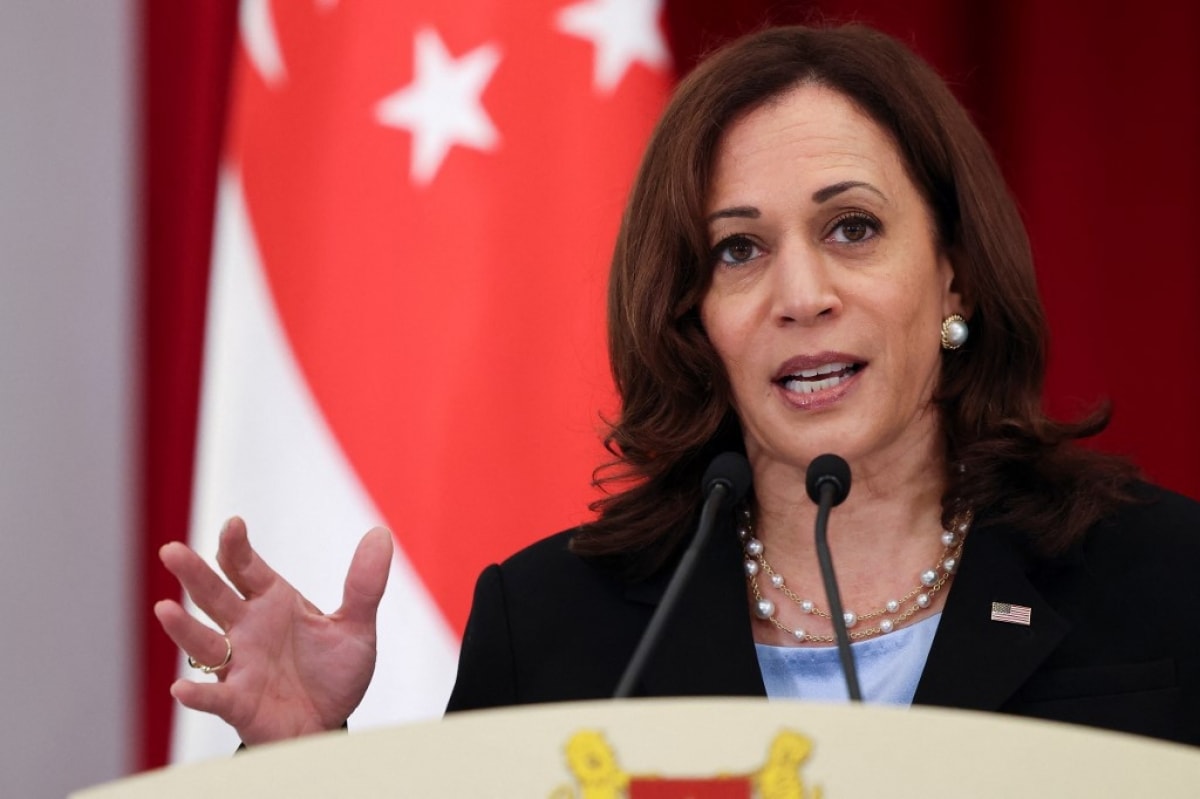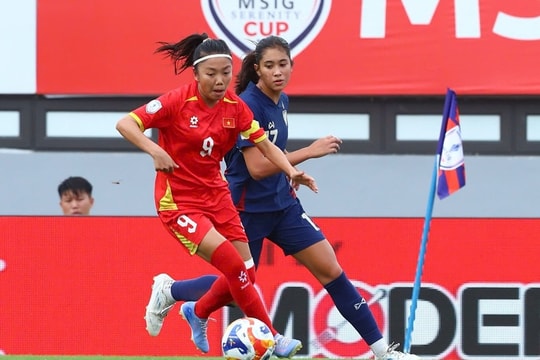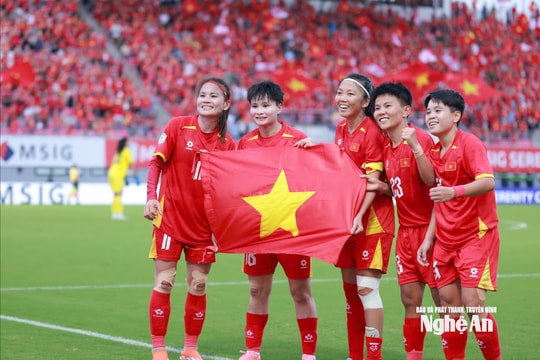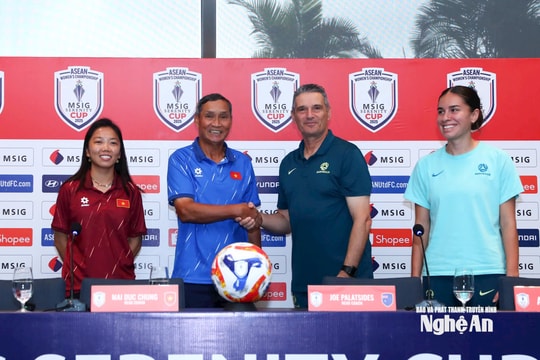What does international public opinion say about US Vice President Kamala Harris's trip to Southeast Asia?
The Washington Post, Reuters, CNBC and regional press have published many comments on US Vice President Kamala Harris's first trip to Southeast Asia starting on August 22.
Some comments said that the visit was intended to demonstrate Washington's strong commitment to the region, especially after the US withdrew its troops from Afghanistan.

Sending a message to ASEAN
Vice President of the United StatesKamala Harrishas chosen to visit Vietnam and Singapore during this trip. In a commentary titled “US Vice President’s Southeast Asia visit sends message to ASEAN” published on August 23, Myanmar’s Irrawaddy newspaper said that, from the US perspective, the two countries in Ms. Harris’s destination this time are considered important partners in promoting Washington’s goal of a free and open Indo-Pacific region.
Harris’ visit is being closely watched by all ASEAN member states, especially in the context of the Taliban taking full control of Afghanistan. ASEAN probably wants to know what the US will say to reassure its partners and allies that Washington will always “stay” and keep its commitment.
Southeast Asia is of enormous importance to the United States. It is a region with long-standing allies such as the Philippines and important partners, including Vietnam, Indonesia and Singapore.
According to Irrawaddy, Singapore – a wealthy country in ASEAN wants to maintain close ties with the US to get security assurance. Up to now, this island nation has always pursued a balanced policy in relations between the US and China and maintained good relations with both sides. Meanwhile, Vietnam and the US have made efforts together to close the past, overcome differences, look to the future and deal with common challenges.
Mr. Alan Chong, Associate Professor of International Relations at Singapore's Nanyang Technological University, commented that the rapid withdrawal of US troops from Afghanistan has raised many questions about the reliability of US defense commitments, but Ms. Harris will have the opportunity to prove to Asian partners that "America will not withdraw."
America needs to turn words into actions
On the same day, the Washington Post also published a commentary stating that Washington needs to do more to demonstrate its role in Southeast Asia. According to this article, after many years of reducing priority for policy towards Southeast Asia, the US has returned.
During her visit to Singapore, Vice President Harris emphasized the US commitment to the region. She affirmed the need to promote a free and open Indo-Pacific region, as well as expand cooperation on security, global economy and pandemic response. The US Vice President's notable quote was "reaffirm, strengthen and renew" when she spoke to the press after meeting with Singapore Prime Minister Lee Hsien Loong on August 23.
However, Southeast Asia still needs to see how the US will deliver on its commitments. As Prime Minister Lee Hsien Loong said, perceptions of US resolve and commitment to the region will be determined by what the US does in the future, how it repositions itself in the region, how it engages its many friends, partners and allies. He saw the visit as a sign that the US is “re-engaging”.
Viewing Southeast Asia as a geopolitically important place at the heart of the Indo-Pacific, Mr. Biden has sent other key officials in the administration, such as Defense Secretary Lloyd Austin and Deputy Secretary of State Wendy Sherman, to visit the region in recent months. According to the Washington Post, these visits show that Washington recognizes it has a lot of work to do.
Bec Strating, a senior lecturer in politics and international relations at Melbourne-based La Trobe University, noted that the US withdrawal from Afghanistan, despite much criticism, could also be seen as a reinforcement of the policy of pivoting towards the Indo-Pacific. In other words, this could be an opportunity for the US to devote more time and diplomatic resources to Southeast Asia.
A different approach from its predecessor
According to CNBC, compared to the administration of former President Donald Trump, the Biden administration appears to be “more cautious and thoughtful” in connecting with Southeast Asian countries. Explaining this issue, Ms. Angela Mancini, Asia-Pacific market analyst at consulting firm Control Risks, said that in the context of the US-China competition being the “number 1” issue that receives bipartisan consensus in the US regarding foreign policy, the Biden administration admits that Southeast Asia will not want to choose between the US and China.
“The US-China rivalry is a key issue in the region, sometimes forcing countries to choose sides. The Biden administration wants to make it clear that the US-Southeast Asia cooperation will be much broader than just that issue. There are many other issues that need to be addressed, such as the Covid-19 pandemic, and doing that requires strengthening partnerships and increasing engagement.”
Expressing a tough stance on the East Sea issue
The visit comes amid rising tensions in the South China Sea, a regional hotspot. During the visit, Ms. Harris affirmed the US commitment to working with allies and partners to maintain and protect the international order based on rules and freedom of navigation in the South China Sea.
Reuters quoted Vice President Harris' speech in Singapore on August 24 as saying: "We know that China continues to coerce, threaten and make unreasonable claims to sovereignty over large parts of the South China Sea. These unlawful claims were rejected by the International Arbitration Court in 2016 and Beijing's actions continue to undermine the rules-based order and threaten the sovereignty of other nations."
Earlier on August 23, speaking to the press after meeting with Singaporean Prime Minister Lee Hsien Loong on August 23, Ms. Harris said: "I reaffirmed the US commitment to working with our allies and partners in the Indo-Pacific region to maintain a rules-based international order and freedom of navigation, including in the East Sea."
According to analysts, the above statement once again reaffirms the Biden administration's policy on the East Sea issue. In the first weeks of taking office, President Joe Biden has sent signals that he will continue his predecessor Donald Trump's tough policy towards China, including increasing maritime activities in the Indo-Pacific region./.








